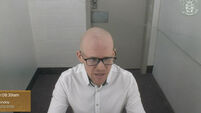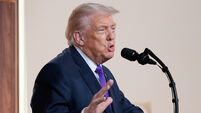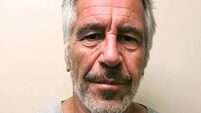Myung-bak not afraid to criticise North Korea
South Korea’s new president-elect Lee Myung-bak said today he would not shy away from criticising North Korea’s authoritarian regime.
He spoke the day after his landslide win ended a decade of liberal rule that has fostered unprecedented reconciliation on the divided peninsula.
“I think unconditionally avoiding criticism of North Korea would not be appropriate,” Lee told a news conference. “If we try to point out North Korea’s shortcomings, with affection, I think that would go a long way toward improving North Korean society.”
The victory by Lee of the conservative Grand National Party marks a shift to the right in Seoul after a decade of liberal presidents – who pursued a “sunshine” policy of engaging the North and largely refrained from criticism of its human rights record.
Although Lee has said he will take a more critical view of Seoul’s aid to its communist neighbour, analysts do not expect any dramatic turnaround in assistance as long as the North maintains its path towards disarmament.
The North this year began disabling its main nuclear facility under the watch of US experts to comply with an international accord – the first time Pyongyang has scaled back its development of atomic weapons.
Lee stressed the North must abandon its nuclear weapons programme to develop its stagnant economy.
“The most important thing is for North Korea to get rid of its nuclear weapons,” he said, calling for cooperation with other countries at international arms talks.
Lee, a former Hyundai CEO and Seoul mayor, also said the divided Koreas can open a new era of cooperation when the North ends its nuclear development.
“The road toward peace through coexistence is the road to guarantee a peaceful reunification,” he said. “Full-fledged economic exchanges can start after North Korea dismantles its nuclear weapons.”
On relations with Seoul’s key Washington ally, Lee said he would “renew the common values and peace based on trust”.
Lee won 48.7% of the vote yesterday with his closest rival, liberal Chung Dong-young, well behind at 26.1%.
The margin of victory was by far the largest in any South Korean presidential election.
Voters apparently wanted change so badly that they were willing to overlook accusations of ethical lapses that dogged Lee throughout his campaign.
Just days before the election, the parliament approved an independent counsel investigation into alleged stock manipulation by Lee that is to be completed before the February 25 inauguration. He has said he will step down if found at fault.
Kang Jae-sup, chairman of Lee’s Grand National Party, asked incumbent President Roh Moo-hyun today in a radio interview to veto the independent counsel bill to allow for a smooth transition of power.
However, presidential spokesman Oh Young-jin said Roh had earlier expressed his intention to sign the investigation bill.
Lee said Roh called him this morning and promised to cooperate on the change in office at South Korea’s presidential Blue House.
Lee, who turned 66 on election day, earned his victory on a wave of discontent for Roh, whom many believe bungled the economy and dragged down the Asian nation’s rapid growth.
Lee said he would “foster an environment where companies can operate freely”.
“The atmosphere was anti-business and anti-corporate so that companies were reluctant to invest,” he said of the last 10 years of South Korean government, adding that his government would actively court foreign investment.
Lee rose from the poverty that gripped the peninsula after the 1950-53 Korean War and worked as a janitor to put himself through college.
He first gained prominence as head of Hyundai’s construction unit, and spent some 30 years at the conglomerate where he earned the nickname “The Bulldozer” for his unswerving drive to overcome challenges.
In one example, he completely took apart a bulldozer to work out why it kept breaking down.
As Seoul mayor from 2002-2006, he undertook projects in the city that earned him environmental credibility and added to his roster of accomplishments despite resistance from entrenched interests.





